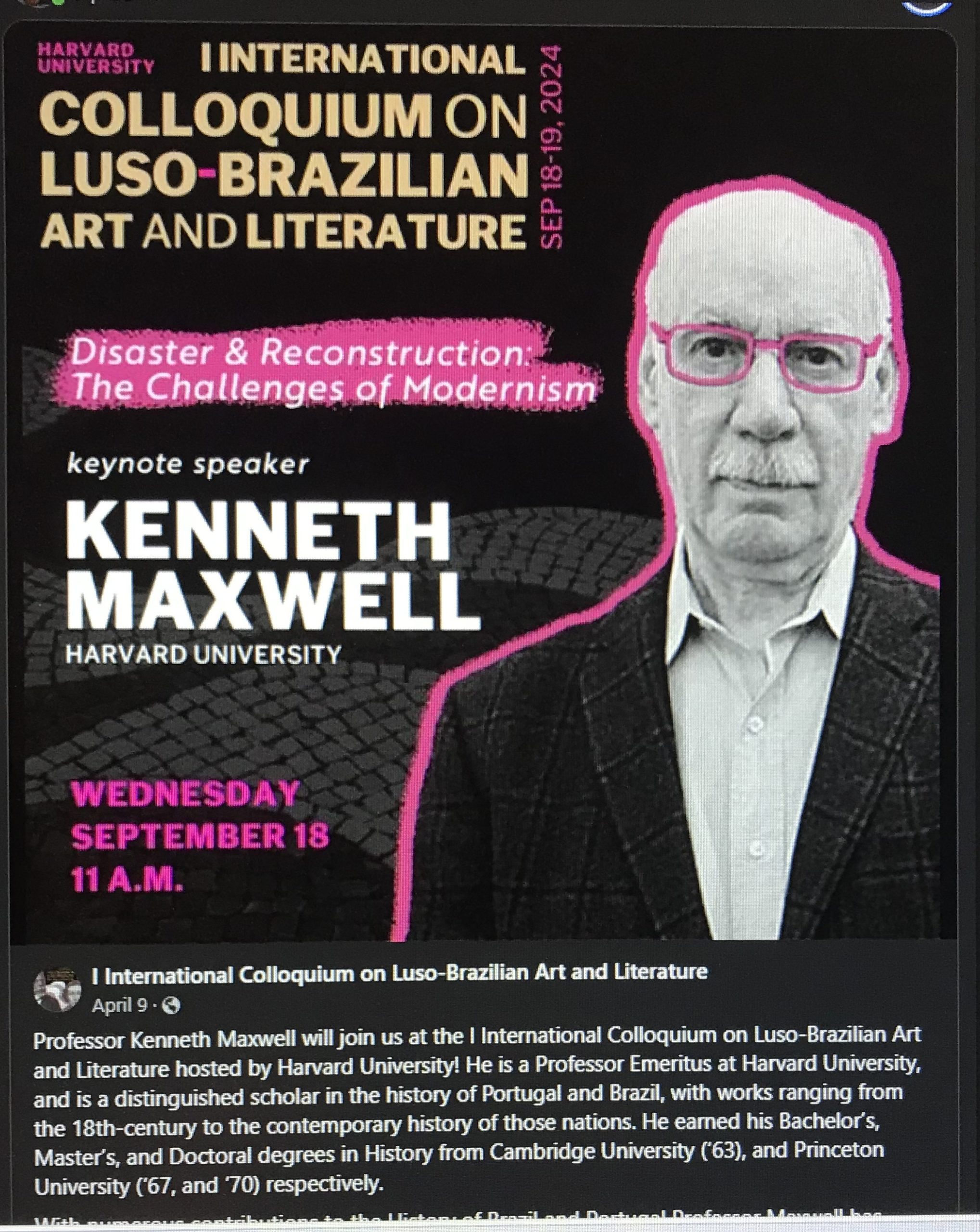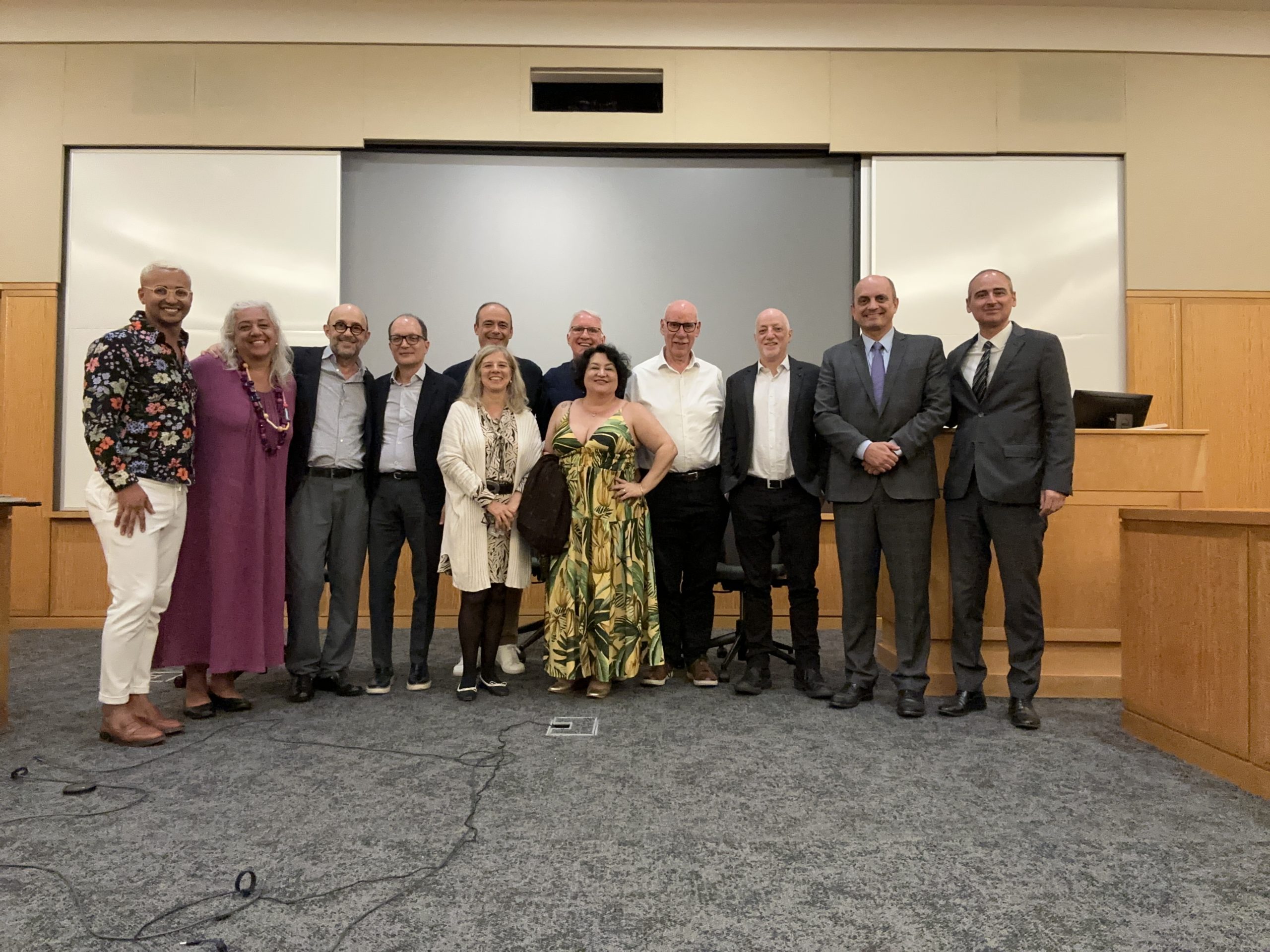The International Colloquium on Luso-Brazilian Art and Literature at Harvard University, September 18th and September 19th, 2024
I have just spent two very intellectually stimulating days back at Harvard University attending the international colloquium on Luso-Brazilian Art and Literature.
The colloquium was organised by Professor Josiah Blackmore who holds the Robert C. Smith Chair of Portuguese at Harvard and his Brazilian colleague Juliano Gomes. Robert C. Smith was a great art historian, especially of of the Baroque in Portugal and in Brazil. He was a graduate of Harvard and he endowed the chair that Prof Blackmore now holds.
The colloquium gathered a galaxy of scholars from Portugal, Brazil, Germany and the United Kingdom, and I was invited back to Harvard where I spent many happy years as a professor of history and where I established the Brazil Studies programs at the David Rockefeller Center for Latin American Studies, and one of the sponsors of the colloquium, to give the opening keynote lecture.
My lecture focused on “Disaster & Reconstruction: The Challenges of Modernism” where I discussed the Great Fire of London of 1668 and aborted plans for Christopher Wren to redesign the city, the reconstruction of Lisbon after the Great Earthquake of 1755 under the direction of the Marques de Pombal, and the destruction of the old Paris and the reconstruction of the new Paris under Napoleon III and the Baron Haussman.
All reconstruction efforts had been framed by disasters and had much in common.
There were many high points of the colloquium.
Presentations were made by Lilia Moritz Schwarcz, of the University of São Paulo and Princeton University, who was recently elected to the prestigious Academia Brasileira das Letras, Pedro Flor for the Universidade Alberta in Lisbon, Erika Naginski of Harvard, Patrícia Merlo of the Universidade Federal de Espírito Santo in Brazil, Susana Varela Flor of the Universidade Nova in Lisbon, Paulo Knauss of the Universidade Federal Fluminense, Alexandro Vidal Porto, and the final keynote address by Rafael Cardoso of the Freie Univeritat Berlin.
The sessions also were chaired and participated in by leading Harvard professors, Doris Sommer, Mariano Siskind, Sidney Chalhoub, who is now the chair of Harvard’s History Department who gave a marvellous paper on Machado de Assis, Tamar Herzog who gave a paper on Tombos, Diana Davis, Bruno Carvalho, another Brazilian now a professor at Harvard and who as a graduate student at Harvard attended the very first seminar I taught at Harvard, and not least, Alejandro de la Fuente. Harvard graduate students, Adam Mahler and Joao Marcos Cupertino Pereira, commented on Ambassador Alexandro Vidal Porto’s stimulating discussion of his latest novel.
One thing also to note is how far Harvard has come in the last decade. There are many Brazilian students now at the University, as well as many Brazilian professors teaching here.
Long may this continue!
But the key to the success of the colloquium was the opportunity it provided for all participants to meet in person, many for the first time, and to exchanges views.
It was a wonderful few days and we must thank Professor Blackmore and Juliano Gomes for creating such vibrant community of scholars and hope that they, and Harvard, will continue to do so in the future. I was very delighted to have been invited to join such a galaxy.
And many thanks again to Professor Blackmore and Juliano Gomes for envisioning and carry out this event with such spectacular effect. Luso-Brazilian studies needs such moments which are regrettably very rare.
Parabéns for many more such intellectually innovative and stimulating gatherings in the future.
Featured Image: The final session of the symposium with the consul-generals of Brazil and Portugal standing to the right…the final session with Alexandre Vidal Porto…(third from the left) and with the organiser, Professor Josiah Blackmore in the center..

Professor Maxwell’s speech to the Symposium
Kenneth Maxwell Speech Harvard Sept 2024See Kenneth Maxwell’s volume of essays which is the first volume in our contemporary global change series:

